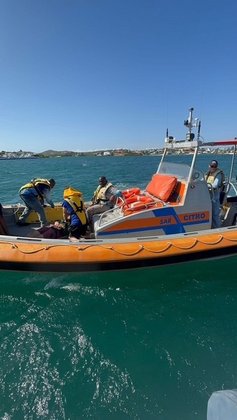Eight enthusiastic volunteers from Saba and St. Eustatius participated in the course. These volunteers will form the first operational crews of the Saba and Statia Search and Rescue Foundation, which was officially established in 2025. Their role goes beyond responding to emergencies at sea: they will also work alongside an external maintenance organization to ensure the readiness and upkeep of both rescue boats.
The Foundation has an ambitious growth plan. By 2026, it aims to expand to at least eight trained volunteers per island, ensuring sustainable capacity and resilience for local search and rescue operations. All volunteers are fully trained by KNRM, with costs covered by the Foundation, and annual refresher courses will secure high professional standards. The Ministry of Infrastructure and Water Management is a big supporter of the foundation by providing multi-year funding.
The new rescue vessels for Saba and St. Eustatius are scheduled to arrive at the end of October. In anticipation, this first training took place in Curaçao, where participants could practice on an identical boat. A follow-up training is planned for November, focusing more specifically on saving lives at sea rather than vessel handling.
Hans Schreuder, Project Leader of the Saba and Statia Search and Rescue Foundation, expressed his gratitude: “We deeply appreciate the tremendous efforts both Public Entities have made in recruiting and selecting these dedicated volunteers. I want to praise not only the volunteers themselves, but also their employers, who made it possible for them to attend training in Curaçao at very short notice. We are grateful to the KNRM for tailoring this course to the needs of the Caribbean region, and we look forward to continued cooperation with CITRO, who generously provided their vessel free of charge for this important training.”
This initiative marks an important step toward building a professional volunteer rescue capability in the Dutch Caribbean—one that is rooted in dedication, preparedness, and international cooperation.

